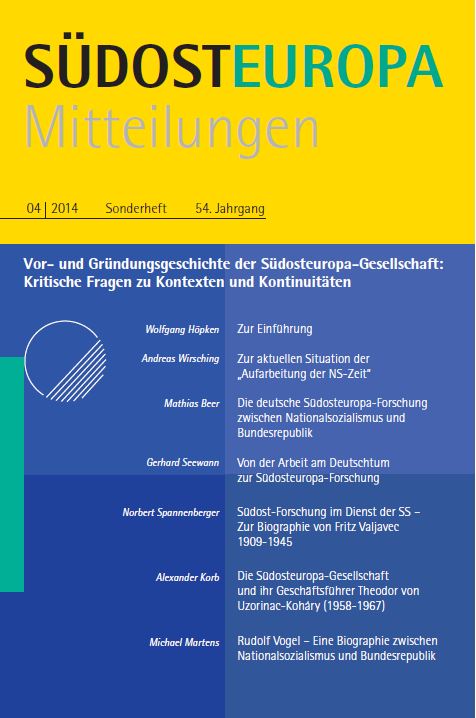Die deutsche Südosteuropa-Forschung zwischen Nationalsozialismus und Bundesrepublik: Kontinuität – Bruch – Neubeginn
The German Southeast Europe Research from National Socialism to the Federal Republic: Continuity – Rupture – Restart
Author(s): Mathias BeerSubject(s): History
Published by: Südosteuropa Gesellschaft e.V.
Summary/Abstract: The history of German research on Southeast Europe is – as the example of the Südost-Institut shows – neither an effortless nor a steady continuation of the past. Equally, it is not a restart from a ‘clean sheet’ after 1945. Rather, it is about ‘constructed continuities’, about reinterpretations of the past in the light of the respective present. With institutional and/or career strategies and the changing resources from politics and science in the course of the Cold War it was possible to restore former working contexts. The discursive and/or rhetorical strategies were closely associated with the institutional ones and aimed at shifting one’s own involvement thereby creating a new image. Placed in this context the change and restructuring of ‘Southeast research’, which was deeply characterized by national socialist thinking, into the body of research on Southeast Europe after 1945 appears like a paradox: The ‘constructed continuities’ built the bridge that successfully led research on Southeast Europe in the context of the Cold War to post-war times. These secured – on the one hand – the institutional base for the future of research on Southeast Europe as a separate subject matter in the Federal Republic. On the other hand these continuities only led to a belated introduction of modern methods and theories after 1960, chiefly forced by a younger generation of researchers.
Journal: Südosteuropa Mitteilungen
- Issue Year: 2014
- Issue No: 04
- Page Range: 28-45
- Page Count: 18
- Language: German
- Content File-PDF

